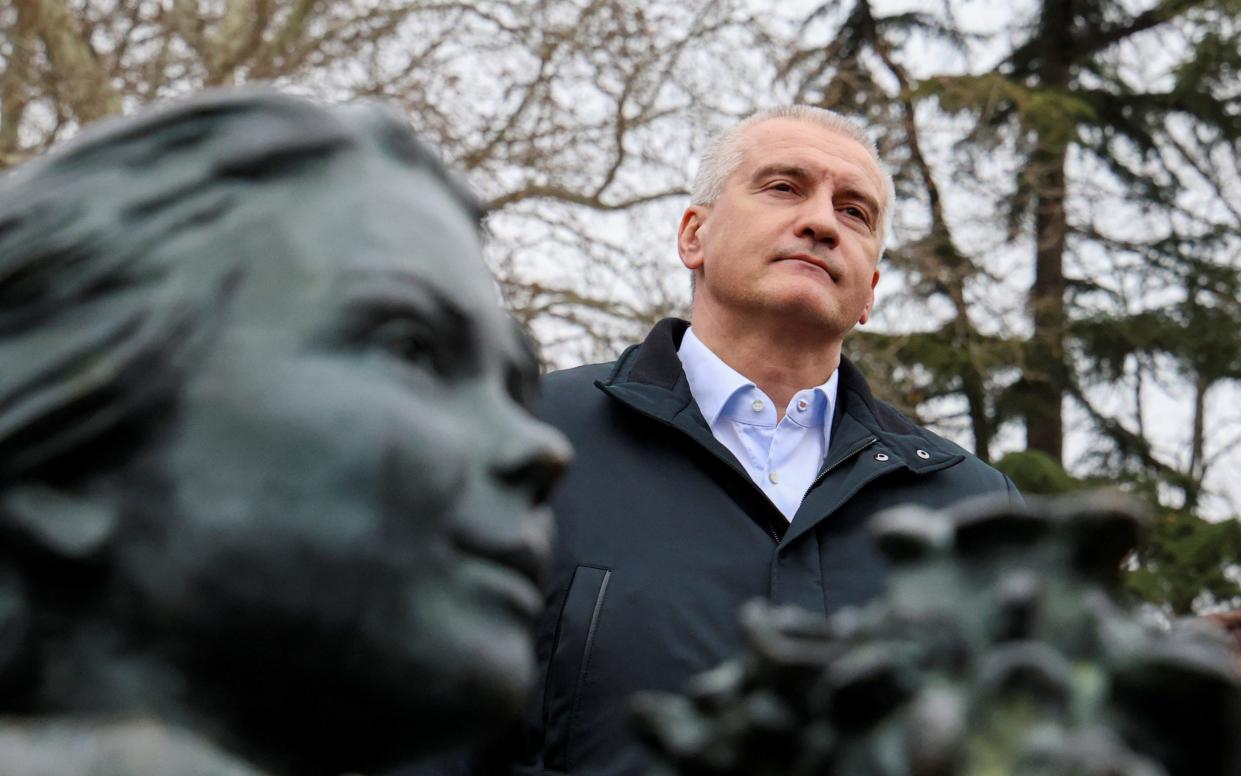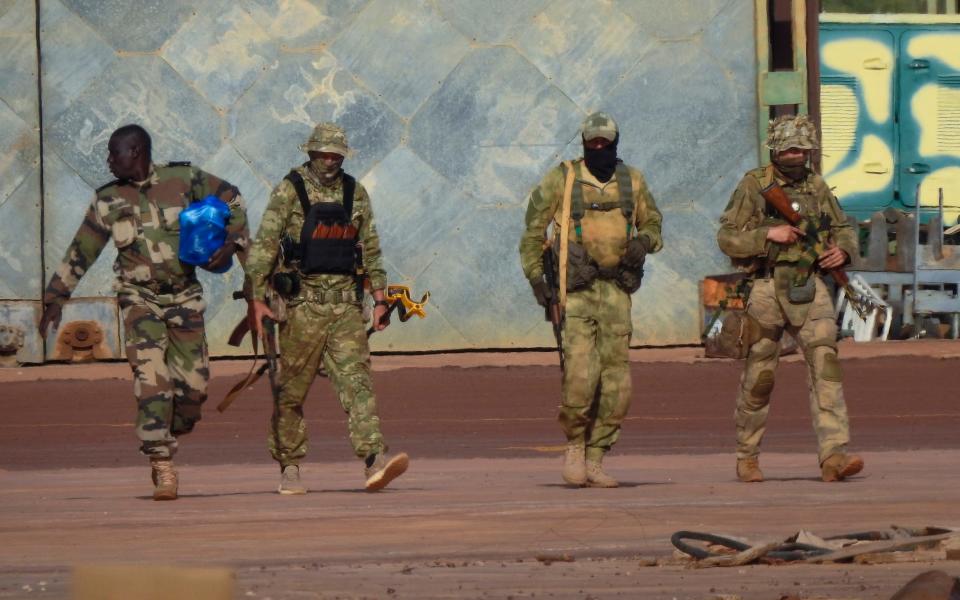Mercenary unit inspired by Wagner Group formed by Kremlin’s Crimea head

The Kremlin-installed head of Crimea has created his own mercenary unit inspired by the Wagner Group.
Sergey Aksyonov has recruited a former Wagner commander in Africa to lead his Convoy mercenary unit of 300 fighters, which has already deployed to occupied parts of Kherson region in southern Ukraine.
“This is Aksyonov’s private military company but the entire group is made up of former Wagner employees,” one of the mercenaries told the Russia-24 TV station in a news report.
In the TV news report, Convoy mercenaries were training in a forest, digging trenches and learning how to set landmines.
Convoy’s Telegram channel was set up last November and heavily features Russian Orthodox imagery and icons, and also refers to Ukrainians as “Satanists”.
Russian opposition media identified the head of Convoy as Konstantin Pikalov who worked as a Wagner commander in Madagascar and the Central African Republic.

Mr Aksyonov has not commented but opposition media stories described Convoy as part of the Russian army’s reserve force because its fighters sign a contract with both the mercenary unit and the ministry of defence.
Wagner mercenaries have been credited with romanticising the concept of the plucky mercenary in Russia, even though most of its fighters are murderers or drug dealers recruited from Russian prisons.
Before it invaded Ukraine, the Kremlin had kept Wagner out of the limelight, preferring to use it as a deniable asset to deploy to Africa and the Middle East to prop up client-dictators.
Wagner now openly recruits in Russia’s towns and cities, its fighters are given funerals with military honours, and shops in Moscow sell Wagner-branded memorabilia and home furnishings.
Sergei Markov, a former adviser to Vladimir Putin and a Russia commentator, explained the appeal of mercenary groups.
“There is no bureaucracy and the time taken for information to reach the fighting units from headquarters at the back is far faster than the regular army,” he said.

Other Russian mercenary companies fighting in Ukraine include Patriot and Redut, which are both closely linked to the Russian authorities and have been accused of war crimes.
The concept of the private military company, a Russian euphemism for mercenary group, has also entered Russia’s youth subculture. A new youth gang called Ryodan styles itself as a “private military company”, although it goes nowhere near war zones. Its lore is based on Japanese Manga comics and its followers wear long dark hair and fight in shopping centres.
Western intelligence agencies have estimated that around 10,000 Wagner mercenaries have been killed fighting in Ukraine out of around 50,000 deployed.
Yevgeny Prigozhin, Wagner chief, also said that 5,000 ex-convict Wagner mercenaries have been pardoned after serving six months on the frontline.

 Yahoo News
Yahoo News 
